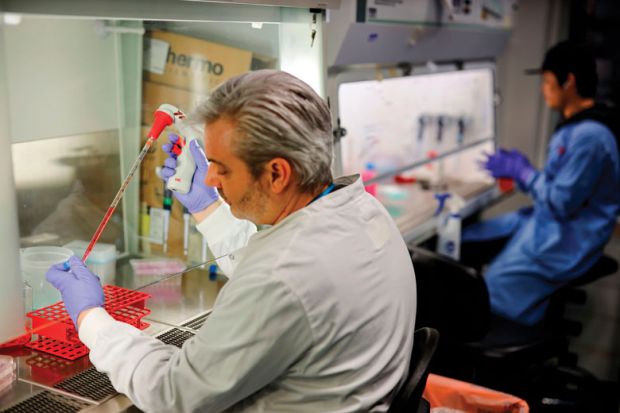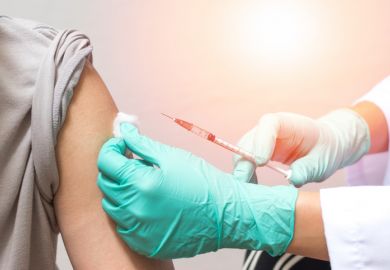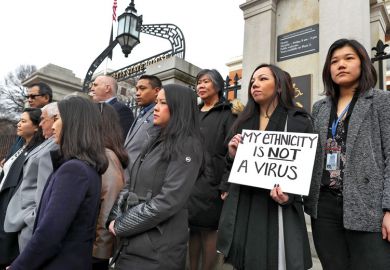“We now, essentially, have a department of Covid-19 research,” explained Graham Cooke, professor of infectious disease at Imperial College London of his institution’s transformation in recent weeks.
Setting up a new department in a matter of days was, he believed, an example of how seriously and speedily the UK’s research base has been responding to the unprecedented global health crisis.
Imperial’s modelling group, whose analysis triggered a shutdown of national life after it forecast that some 250,000 people in Britain would die under the government’s previous strategy, is the most high-profile work from the university, but there are many others working on the different challenges ahead, added Professor Cooke.
“Our university shut down a week ago, but we have repurposed our medical buildings to run Covid-19 research to look at vaccines, diagnostic development and new therapeutic drugs,” he said.
“Our engineering department is looking at repurposing its facilities to make ventilator valves,” he added, saying the institution had been “overwhelmed by the response” of researchers offering their services.
And yet, Professor Cooke noted, Imperial’s remarkable response to a global health crisis – its application of expertise to real-world problems – is “actually what universities do all the time”.
“It is only very visible now because it is happening in a time-critical way,” he explained.
Other UK universities have also deployed their staff to tackle problems related to Covid-19. At the University of East Anglia, researchers have launched a project to 3D-print respirator parts, masks and other critical care equipment, while UCL has redirected dozens of staff towards clinical or testing roles.
While final-year student doctors and nurses have been recruited early to bolster NHS numbers, the crisis has not yet seen huge numbers of medically qualified scientists called back, said Professor Cooke. “About a dozen or so have gone into hospitals. But many more, including senior managers, are ready to return to the front line and will do so over the next few weeks,” he said.
Trisha Greenhalgh, professor of primary care health sciences at the University of Oxford, said she had volunteered to return as a family doctor but had been told that she could not because, as a cancer survivor, she was deemed to be in a high-risk group. “It raises the question of what to do with this dad’s army group of doctors [in academia] – everyone will have something wrong with them, even if it’s just high blood pressure,” said Professor Greenhalgh.
She added, however, that her expertise would be better used in research in any case, in particular advising clinicians and policymakers on how video consultations by GPs – an area she has studied − could be rolled out more widely. “I think the majority of doctor-patient interactions will need to be video or online…so I have been working with policymakers on these ‘total triage’ systems, which are more important than ever,” she said.
More broadly, the Covid-19 pandemic has forced researchers to operate at hitherto unknown speed, Professor Greenhalgh said.
“If we are going to have any chance of contributing to this situation, we have to do research that goes from inception to publishing results in a matter of days, not years,” she said, adding that academia should recognise but “engage with the trade-off between speed and thoroughness. It has been very interesting to see how research has stepped up to the plate and worked at the same pace as policymaking.”
Register to continue
Why register?
- Registration is free and only takes a moment
- Once registered, you can read 3 articles a month
- Sign up for our newsletter
Subscribe
Or subscribe for unlimited access to:
- Unlimited access to news, views, insights & reviews
- Digital editions
- Digital access to THE’s university and college rankings analysis
Already registered or a current subscriber?








